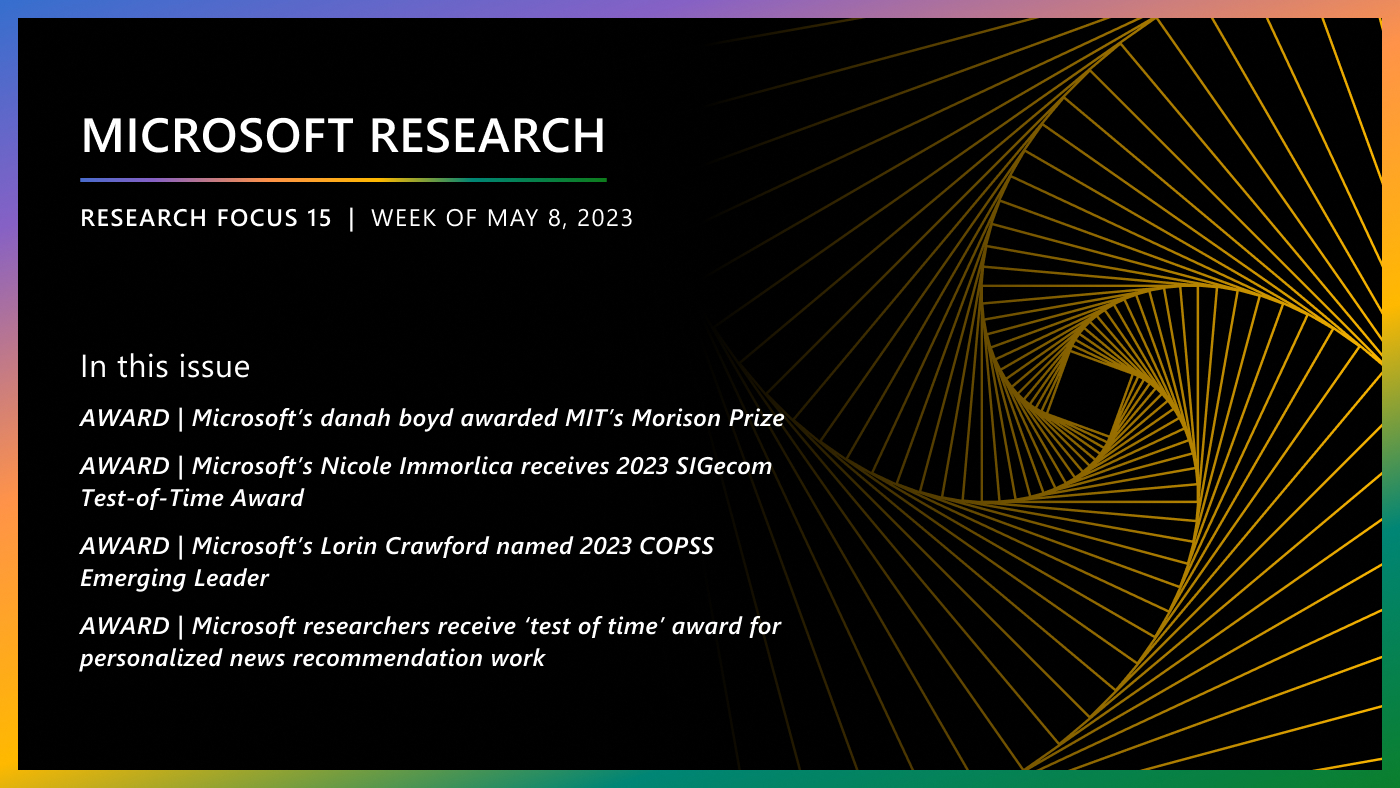By
 (opens in new tab)
(opens in new tab)
Cynthia Dwork, Mary Czerwinski and Sriram Rajamani
Three Microsoft researchers have been honored as Fellows of the Association for Computing Machinery for their significant contributions to the development and application of computing across multiple disciplines.
Mary Czerwinski (opens in new tab), whose work focuses on emotion tracking, information-worker task management, multitasking and awareness systems for individuals and groups, was cited for contributions to human-computer interaction and leadership in the CHI community.
Cynthia Dwork (opens in new tab), a cryptographer and distinguished scientist at Microsoft Research who recently developed new algorithms that will transform adaptive data analysis (opens in new tab), was elevated to ACM Fellow for contributions to the science of database privacy, cryptography and distributed computing.
And Sriram Rajamani (opens in new tab), assistant managing director of Microsoft’s research lab in India whose focus lies in designing, building and analyzing computer systems, was cited for his contributions to software analysis and defect detection.
Rajamani, part of the Programming Languages and Tools (opens in new tab) research group, said of the honor, “I am lucky to be working in a research area where it is possible to do work that both advances the state of the art and benefits Microsoft’s products at the same time, and I feel grateful to my colleagues for providing the environment where I can do such work and be recognized by the community for it.”
“I feel honored to receive this recognition from ACM” he added.
Dwork and Czerwinski, too, acknowledged collaboration as key to their success.
“I am indebted to my colleagues and collaborators worldwide, whose company I have so enjoyed and from whom I have learned so much,” Dwork said.
“I am completely indebted to and honored by my esteemed colleagues who worked hard for me to receive this recognition,” Czerwinksi said. “Being named an ACM Fellow motivates me to work diligently to design technology that empowers and enriches users’ lives.”
The ACM also named two Microsoft researchers to their Distinguished Scientists list: Ratul Mahajan (opens in new tab) and Nachiappan Nagappan (opens in new tab) for their significant accomplishments or impact within the computing field.
Mahajan, a principal researcher in the Mobility and Networking (opens in new tab) research group, just last year received the prestigious ACM SIGCOMM Test of Time Paper Award (opens in new tab) for his 2002 paper Measuring ISP topologies with Rocketfuel (opens in new tab).
Nachiappan, a principal researcher in the Empirical Software Engineering Research Group (opens in new tab), focuses on software reliability, software metrics, software testing and empirical software processes. He also has an adjunct faculty appointment at Indraprastha Institute of Information Technology – New Delhi (opens in new tab).
The Association for Computing Machinery is the world’s largest educational and scientific computing society, uniting computing educators, researchers and professionals to inspire dialogue, share resources and address the field’s challenges. The ACM will formally recognize the 2015 Fellows at its annual Awards Banquet in San Francisco in June.
Earlier this year Jeannette Wing (opens in new tab), corporate vice president of Microsoft Research, received the ACM Distinguished Service Award (opens in new tab) for her transformative work in how the world views computing (opens in new tab). More than a dozen Microsoft researchers have been named ACM Fellows, and five have received ACM’s top honor, the A.M. Turing Award (opens in new tab), generally recognized as the highest distinction in computer science.
Related:
- Microsoft Research Awards page (opens in new tab)
- Learn How Microsoft Researchers Are Using Wearable Technology to Read Your Moods (opens in new tab)
- Deep learning, machine learning advancements highlight Microsoft’s research at NIPS 2015 (opens in new tab)
- How Today’s Creativity Will Inform Our Entertainment of the Future (opens in new tab)
- 2015 ACM Fellows (opens in new tab)





